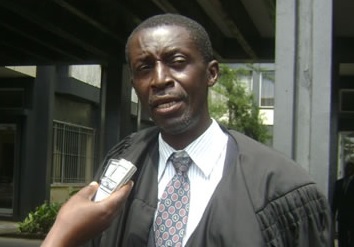Cllr. Tiawan Saye Gongloe, a Liberian human rights lawyer and politician, has issued a compelling call to action for the Liberian media, urging them to embrace the power of Artificial Intelligence (AI) tools to enhance investigative journalism. He emphasizes the need for the Press Union of Liberia to equip journalists with the necessary training and resources to effectively utilize AI in uncovering hidden wealth and illicit activities, particularly those involving public officials. Cllr. Gongloe highlights the 2016 Panama Papers exposé as a prime example of how AI-powered tools can be instrumental in processing vast amounts of data and revealing concealed information that would otherwise remain hidden. He envisions Liberian journalists using similar technology to track the misuse of public funds and hold those responsible accountable.
Cllr. Gongloe’s appeal underscores the critical role of a robust and independent press in upholding transparency and accountability within a democratic society. He argues that AI is no longer a futuristic concept but a readily available tool that can empower journalists to delve deeper into complex issues and expose corruption. He suggests that by incorporating AI into their investigative practices, Liberian journalists can not only compete with international media outlets but also take the lead in uncovering critical stories that impact the lives of ordinary citizens. This proactive approach, he believes, is essential for sustaining independent journalism in the rapidly evolving digital landscape.
The call for AI integration is accompanied by a strong emphasis on ethical considerations. Cllr. Gongloe stresses the importance of establishing ethical standards for the use of technology in media, ensuring that the pursuit of truth remains paramount. He advocates for self-regulation within the journalistic community, urging journalists to hold themselves accountable to the highest standards of integrity to avoid external intervention. This commitment to ethical practices, he argues, is vital for maintaining public trust and safeguarding the credibility of the press.
Cllr. Gongloe further cautions against the potential misuse of AI, particularly in the dissemination of misinformation. He cites the emergence of deepfakes during the Russia-Ukraine war as a stark reminder of the manipulative power of AI-generated content. He warns Liberian journalists to be vigilant against such tactics, especially during elections, as fabricated videos and audio recordings can incite violence and destabilize the democratic process. He stresses the need for critical evaluation of information and a commitment to factual reporting to counter the spread of disinformation.
Beyond AI, Cllr. Gongloe also addresses the issue of digital surveillance and its potential impact on press freedom. He references the use of Pegasus spyware against journalists in India, highlighting how tools designed for counterterrorism can be misused to suppress dissent and stifle investigative reporting. He argues that unrestricted surveillance equates to censorship and undermines the fundamental right to a free press. He emphasizes that security measures should not come at the expense of press freedom and the public’s right to information.
Cllr. Gongloe concludes his call to action by underscoring the responsibility that comes with press freedom. He acknowledges that while the press plays a crucial role in holding power accountable, journalists must also be held accountable for their reporting. He cites examples of defamation lawsuits against media outlets in the United States, emphasizing the consequences of inaccurate or reckless reporting. He stresses that public trust is the cornerstone of press freedom and that false reporting erodes this trust, ultimately jeopardizing the very freedom it seeks to protect. He urges Liberian journalists to prioritize factual accuracy and uphold the highest standards of journalistic integrity. He reiterates that press freedom is not merely a privilege for journalists but a fundamental right of the people to know the truth, enshrined in the Liberian Constitution. He implores journalists to wield this right responsibly, using their platform to promote peace, understanding, and national progress, rather than division and hatred. He envisions a media landscape where journalism serves as a powerful instrument for positive transformation, shedding light on corruption and contributing to the betterment of society.














